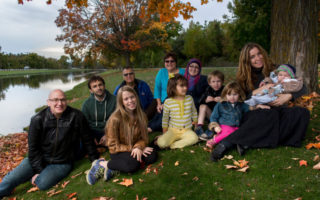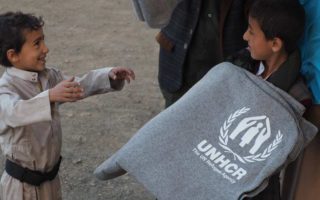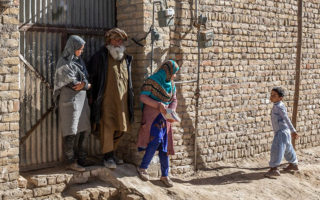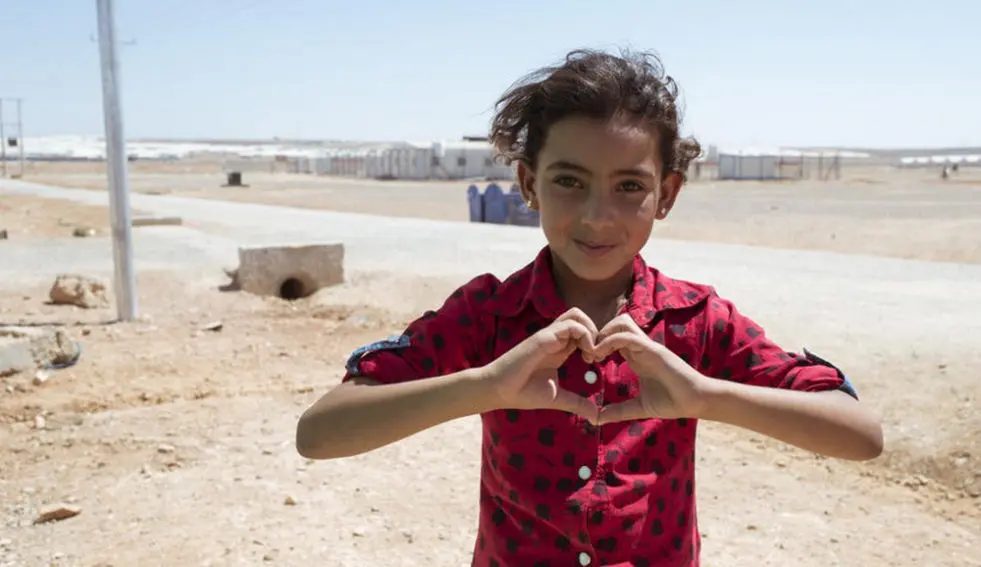
A young refugee girl makes a heart with her hands outside Al Azraq Refugees Camp’s community services center. © UNHCR/Geoffroy Schied
With the help of humanitarians, friends and families, there’s enough love to go around.
By Lidia Abraha in Toronto, Canada
Millions of refugees have faced countless hurdles when fleeing conflict and violence. But love and connection are some of the things that hold them together. For this Valentine’s Day, we’ve put together a list of our favorite stories that have opened our hearts.
From humanitarians to best friends, to couples and families, the world gets a little brighter when you open your heart to refugees. We hope these stories bring light to your day.
1) Meet the 16-year-old humanitarian who has opened her heart to refugees
Daphnée Gagnon-Beaule’s heart is big enough to save all in need.
The 16-year-old hoped to raise enough money to purchase one water distribution system on UNHCR’s gift shop. After two months, she had collected $2,400 in donations — the equivalent of six gifts.
“I’m still young, but I have a big dream: to change the world. Not for the fame, but to help people with all my heart. This is my greatest wish and I am determined to do everything I can to help others.”
Now working part-time, she allocates 10 per cent of her earnings to charity. She is already thinking of purchasing another gift through UNHCR, with $150 she saved in seeking to provide survival kits for families.
“There’s millions of refugees out there waiting for help,” said Daphnée. “You don’t have to be rich or be a hero or be even an adult or be known to help. It can be everybody with a big heart.”
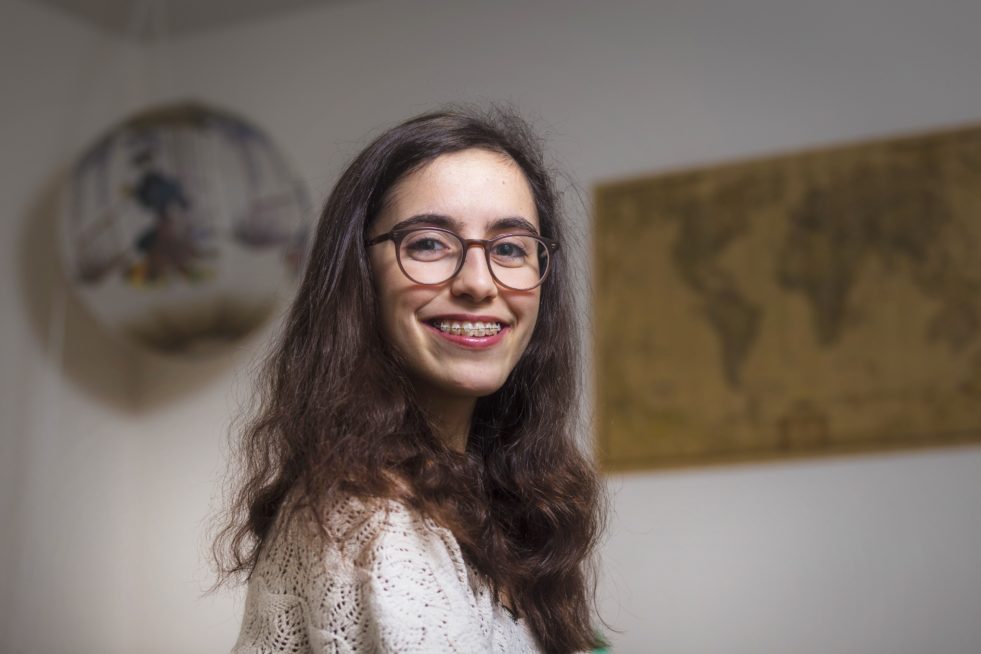
Daphnée Gagnon-Beaule is seen at home in Lévis, Quebec. The 16-year-old raised $2,400 for UNHCR to purchase water distribution systems for refugees. ©UNHCR/Francis Vachon
2) Becoming the best of friends in Beirut
Friendship grows anywhere — even in the darkest places.
Shadi left Syria for Lebanon in 2012 with about $20 in his pocket. He spent the first two weeks on the streets and separated from his family once the war broke out. He has since come a long way thanks to the new friendship he has made.
As an up-and-coming actor, Shadi met Elie on a movie set in Beirut. The 33-year-olds instantly clicked, bonding over a shared love of food and music. A week after they met, they went beach camping. Today, they are the best of friends.
“Having a person like him in my life, makes me feel like I’m not a stranger. I don’t feel like a stranger in this country,” said Shadi.
Spend a day with the dynamic duo in Beirut.
3) A tearful reunion, three years in the making
Thousands of refugee families are often separated when fleeing violence or conflict. So when Abdo Bakr landed at the Winnipeg International Airport, he rushed to kiss his mother’s feet and hug the siblings he hadn’t seen for years.
The whole family was uprooted by the war in Syria, forcing them to flee to Turkey. Mohamed, his parents and two sisters were resettled in Canada in 2016. During the process, the case file for Abdo got separated, and they had to leave him behind in Turkey.
It took years to get Abdo here, but Mohamed said he knew he would see his brother again.
“We are really happy now, life has changed, believe me. When the family is together, everything has changed,” said Mohamed.
These videos are always pure joy. A mother, who came to Canada as a refugee from Syria, sees her son for the first time in three years after his refugee application was approved. The family is now reunited. He goes to kiss her feet, a sign of respect. She sits right down with him pic.twitter.com/Pu5dc4el8H
— Melissa Martin (@DoubleEmMartin) November 7, 2019
4) It’s never wrong to love — Toronto exhibit cast light on LGBTQI+ refugees
Many years before they met by chance on social media and fell in love, Nouran Hussein and Miral Mokhtar were bonded by a common truth about who they really were — a truth they felt forced to keep silent in their native country of Egypt.
“When we first arrived in Toronto, we were so happy that we cried,” said Nouran.
Growing up separately in Egypt, both Nouran and Miral realized early on that their childhood crushes and romantic feelings for their female classmates weren’t just a passing phase. By their teen years, the women had privately acknowledged to themselves the truth about their sexual identities. But neither felt they would be accepted if they made their declarations public. They feared potential backlash — or worse.
As featured subjects in a Toronto photo exhibit showcasing lesbian, gay, bisexual, transgender, queer and intersex (LGBTQI) refugees, “Am I Wrong To Love?” explores persecution, displacement and migration through the powerful testimonies of LGBTQI refugees and refugee claimants in Canada.
5) The WhatsApp Wedding
It’s a love story that started over the phone — and ended with wedding bells.
Minear and Khola grew up in the same neighbourhood of Dara’a City, in southern Syria, but had never met before their mothers introduced them in April 2014.
At the time, Minear was a refugee in Jordan and Khoula was still in Syria with her family. From opposite sides of the border, they agreed to speak on the phone.
Minear was immediately enchanted by her voice, but with the phone lines constantly being cut off, they had to rely mainly on WhatsApp and Viber messaging to stay in touch, with Khoula connecting to a neighbour’s Wifi.
“I didn’t care if it was WhatsApp, Viber, Facebook or whatever; I just wanted to talk to her,” said Minear.
Set against all the tragedy and broken dreams the conflict has inflicted on millions of lives, their happiness is a small but significant victory.
We hope that you’ve felt the love through these five stories. Help share the love this Valentine’s Day by providing refugee families with essential life-saving support. Shop Now.
Originally published on UNHCR Canada’s Medium Blog on 10 February 2020



